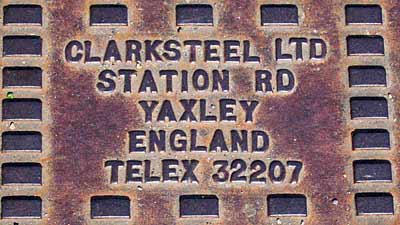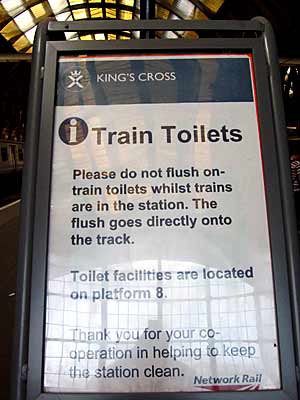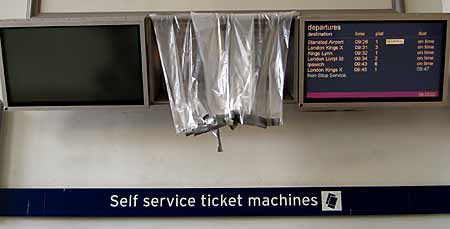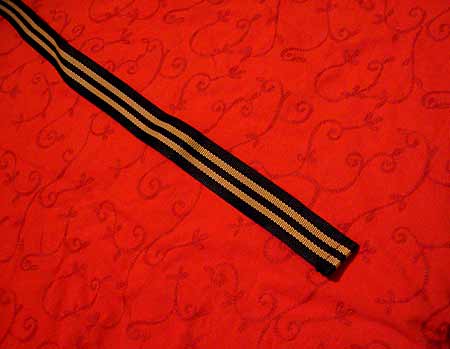Life is nanotechnology that works.
Rita Colwell, Director, National Science Foundation, quoted in Ray Kurzweil’s new book.

Life is nanotechnology that works.
Rita Colwell, Director, National Science Foundation, quoted in Ray Kurzweil’s new book.
Yep. Now we have the official confirmation.
UK premier Tony Blair has endorsed US President George Bush’s assertion that coalition troops must stay in Iraq as long as necessary to defeat terrorism.
Mr Blair told the Associated Press it was “vital” the US-led coalition remained until the country stabilised.Defeating “insurgents and terrorists” there would lead to the destruction of terrorism across the globe, he said.
Thanks to Miles Berry who alerted me to the fact Google Maps now provides satellite imagery of the UK. And doesn’t obscure sensitive locations either!
PartyGaming floated on the London Stock Exchange today.
PartyGaming’s shares rose 11% on the first day of dealings yesterday, defying doubters who thought it would be impossible to float a business in London whose activities are considered illegal in the US. Strong demand for shares in the world’s biggest online poker company meant the four founders sold extra into the flotation. The quartet of two Indian computer engineers plus an American former porn entrepreneur and her husband will now collect a combined £1bn in cash and retain stakes collectively worth £3.5bn.
PartyGaming peppered its float prospectus with warnings about the risk of criminal and civil proceedings in America, notably from the US Department of Justice, which regards gambling over the internet as illegal.
Funny how nobody in the City seems concerned about the ethics of this. I bet if I tried to float a company whose services were illegal in other jurisdictions I’d be condemned from a great height by men in suits from City institutions. (Unless, of course, it was making huge profits.)
Interesting fact no. 3443: the programmer who wrote the original software for PartyGaming is called Dikshit. He will collect £420m and keep a 30.4% stake worth £1.5bn.

When was the last time anyone gave you a telex number? (Does anyone still use telex?) From a manhole cover spotted today.
More: Wikipedia claims that “Telex is still in use for certain applications such as shipping, news, weather reporting and military command.”

… this is ridiculous.

Regular readers will know that I always photograph this display at Cambridge station when it’s showing a blue screen of death. But this morning there wasn’t even a screen, blue or otherwise. What can it mean?
June 28, 2004
In a few days, Iraq will radiate with stability and security.
Iyad Allawi, newly sworn-in Prime Minister of Iraq.
26 June, 2005
The insurgency could go on for any number of years. Insurgencies tend to go on for five, six, eight, ten, twelve years.
Donald Rumsfeld, US Secretary of Defense
The US Supreme Court has ruled against Streamcast et al. I’ve just downloaded the Judgment for a closer look. At first sight, it seems to hinge on intent — i.e. whether a technology was created with an intent to copy or distribute protected material. If that’s what the Judgment really says, then the decision needn’t have the chilling effect on innovation that so many of us feared. But these are deep waters, Holmes, and I’m submerged just now.
Can you imagine the discussion-fest there will be on Blogs tonight? I want to know first what Ed Felten and Larry Lessig think. Neither has said anything substantive yet (17:30 UK time). It will be a long night.
Update: Interesting discussion going on at SCOTUSblog.

My attempt to be artistically enigmatic. Er, in reality it’s a belt which happened to be lying on a duvet cover. Must take a course in pretentiousness sometime and get myself a New York agent.